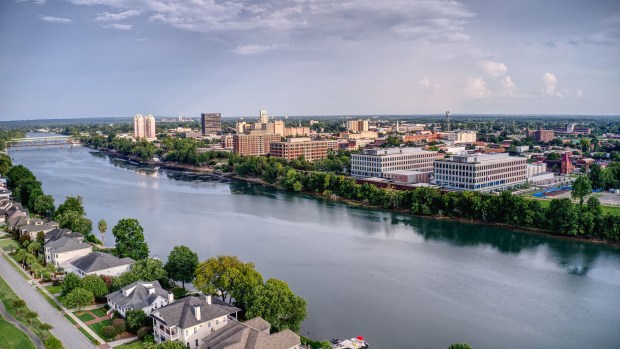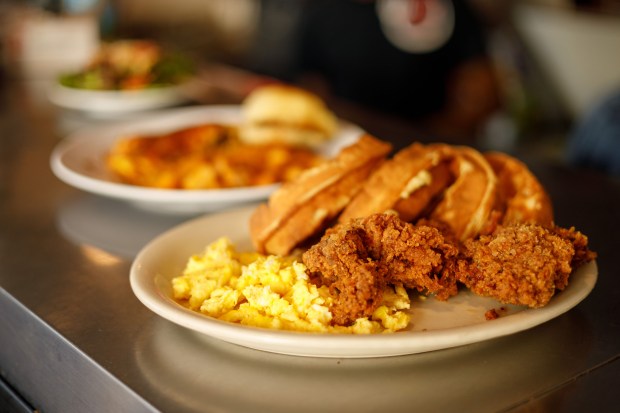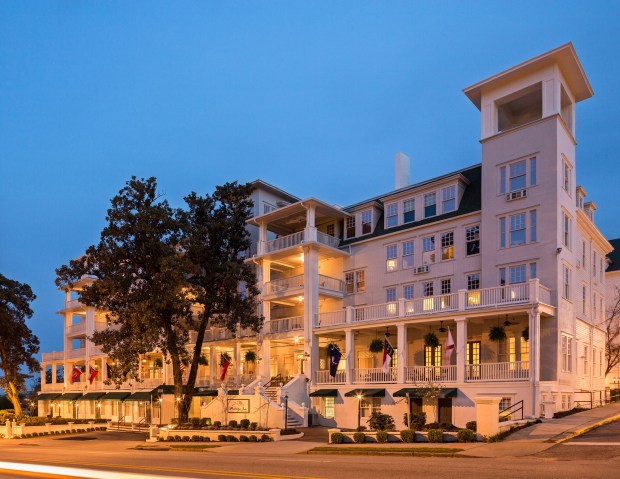Ever since Bobby Jones organized the first Masters at Augusta National in 1934, the international tournament has become the holy grail of every golfer hankering to play on its hallowed links or at least snag a coveted ticket to walk the 18-hole course alongside the greats of the sport: Woods, Mickelson, Scheffler, McIlroy and Fowler.
Georgia’s gift to the golfing universe is the Masters, and the Masters certainly helped put Augusta on the map. Well, that and perhaps a few famous folks from this city of 202,000, including the great rhythm and blues master and Godfather of Soul James Brown, singer and songwriter Amy Grant, Metropolitan Opera soprano Jessye Norman, actor Laurence Fishburne, wrestling star Hulk Hogan, and Danielle Brooks, the Oscar nominee for her performance in the movie remake of “The Color Purple.”
With Masters week here — it takes place through Sunday — it’s important to know there’s more to Augusta than golf and a celebrity or two.
Among the fun facts about the Garden City, as Augusta is known because of its profusion of private gardens and dazzling spring flowers, is that it was named after Princess Augusta of Saxe-Gotha-Altenburg and wife of Frederick, Prince of Wales, a title now held by Prince William. The princess was the mother of King George III, and James Oglethorpe, who established Georgia in 1736, attempted to win royal favor with the crown, so he named the former trading post after her.
Augusta was also the second capital of Georgia, sharing that honor with Savannah, Louisville, Milledgeville and Atlanta, the now permanent home of state government. The Medical College of Georgia, the state’s first medical school, is in the Garden City, and although it has changed names several times over the past few years, it is now and will always be affectionately known to Georgians simply as MCG.
At least 10 Confederate generals, including Maj. Gen. Joe Wheeler and Lt. Gen. James Augustus Longstreet, were either born, once lived in or are interred in Augusta. Two of the three Georgians who signed the Declaration of Independence, George Walton and Lyman Hall, are buried downtown on Greene Street. The third, Button Gwinnett, is buried in Savannah.
Quick hits: The Augusta Chronicle, first published in 1785, is not only the oldest newspaper in Georgia, but also in the South. Actress Jayne Mansfield lived in Augusta, as her husband Lt. Paul Mansfield, was stationed at Camp Gordon, later to become Fort Gordon. North Augusta is not in Georgia but over the Savannah River in South Carolina. And golfer Larry Mize is the only Augustan to ever win the Masters.
The Georgia-born Ty Cobb, the first player inducted into the Baseball Hall of Fame, kick-started his professional career in 1904, playing for the Augusta Tourists of the South Atlantic League. While he played for Detroit in 1905, he maintained his home in Augusta until 1932. His first wife, Charlotte “Charlie” Lombard, was from Augusta, and four of their five children were born here.
Other high-flying tidbits about the city add to its singular character, including that brothers Orville and Wilbur Wright created one of the first commercial flight schools near what is now Daniel Field, one of Augusta’s two airports and where most golfers park their jets while they’re playing Amen Corner at Augusta National. Peter Carnes, who launched the first hot-air balloon flight in America in 1784 in Philadelphia, lived in and flew hot-air balloons in Augusta.
That’s enough trivia to whet your appetite to visit Augusta, not just during the Masters but any time of the year. But once you get here, you need to know where to eat and stay as you uncover more minutiae of the marvelous city.

Dining and drinks
Augusta is all about food, and its restaurants offer everything Southern from grits and gravy to pecan pie to soul food shacks to fine dining. Try Finch and Fifth for brunch, lunch, dinner and happy hour for fabulous charcuterie and Georgia specialties such as boiled peanuts, Vidalia onion dip or shrimp and grits. For unique dishes of fried pickled okra (you read that correctly), smoked chopped brisket or chili garlic shrimp, the reservations-required Noble Jones, known locally as NoJo, should be on your radar screen.
Frog Hollow Tavern, touted as a “modern restaurant meets bar,” is downtown on Broad Street and is the place to try regionally grown ingredients that make up dishes that include buttermilk-fried quail or braised Berkshire pork shoulder with collards and mac-and-cheese. Laziza Mediterranean Grill offers an international menu of Mediterranean-inspired goodies of gyros, kebabs and yummy baklava.

For dining and libations with a view, try Edgar’s Above Broad, a snazzy rooftop restaurant in downtown for breakfast, lunch or dinner, for Southern palate showstoppers of deviled eggs, pimento cheese dip, blue crab dip and pulled pork nachos.
Beck’s on King’s Way in the heart of Augusta is known for its seafood, including oysters raw and baked with ingredients of jalapeno, Parmesan and Asiago cheeses, and herb butter. You can also get Scottish salmon, blackened grouper or a shrimp burger, all with the perfect side of pimento-cheese hush puppies.
That first meal of the day is important, so try starting it out at Brunch House of Augusta for biscuits smothered in pork or turkey sausage gravy, chicken and waffles, or the Garden City breakfast bowl with an omelet over stone-ground grits. Lunch at Brunch House is salads, burger and pasta, but French toast stuffed with Dutch apples, strawberries or blueberries is also on the menu.
Where to stay
Old is the new cool in Augusta, and you have a choice of historic hotels and inns to lay your head at night. The original setting of the iconic Partridge Inn Augusta, managed by Curio Collection by Hilton, is an 1836 home that has been carefully restored and remains intact inside the inn. For the past 100 years or so, it’s been a hotel that has seen the likes of presidents, luminaries of every sort and, of course, Masters golfers. Set high atop the gently sloping, verdant hills of the Summerville neighborhood, the hotel also houses the 8595 Restaurant and Bar with its Southern cuisine, It is known for its “Best of Augusta” lavish brunch on Sundays.

The Olde Town Inn, in Georgia’s oldest neighborhood of Olde Town, has only five rooms, each one decorated in period furnishings and each with a full bath and fireplace. Brimming with charm and character, the inn was built in 1896. One of Augusta’s best kept secrets is that the Fox’s Lair, a cozy underground bar, is downstairs in the basement and features live music.
Another small bed-and-breakfast is the Queen Anne Inn, a Victorian-style home built in 1894. With its wide porch, balconies and soaring chimney and turret, it’s a quiet place to step back in time and unwind. The downtown inn is close to restaurants, museums and attractions, so park the car and put on your walking shoes.
If a historic inn isn’t quite for you, nearly every chain hotel is located either in or near Augusta, among them the Augusta Marriott, the Hyatt House Downtown Augusta and Crowne Plaza North Augusta.
Now that you’re armed with a basic blueprint of Augusta’s history, legend and lore, know that April is a wonderful time of the year to visit: The city practically glows with azalea, dogwood and magnolia blossoms as Georgia spectacularly welcomes spring. Much like the Masters, nature is another of Georgia’s gifts to the universe and is best experienced firsthand.




